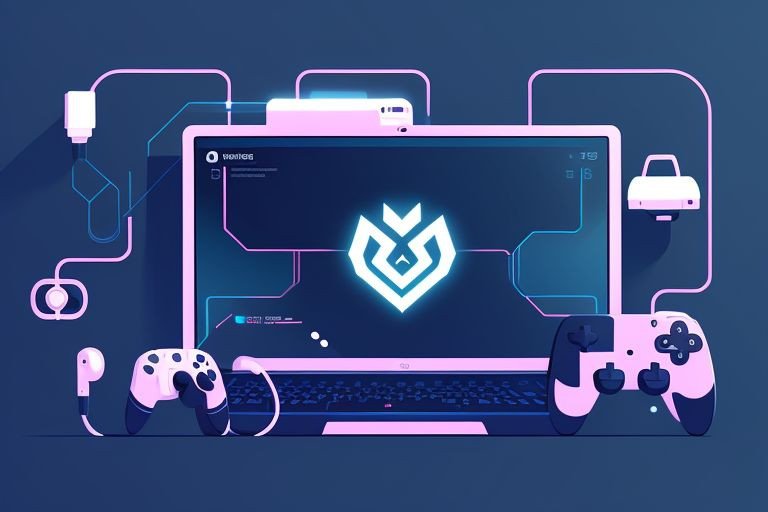Table of Contents
Gaming communities have become an integral part of the video game industry, influencing the way games are developed, played, and perceived. These communities, whether online or offline, bring together passionate individuals who share a love for gaming.
Rise of Gaming Communities
Gaming communities have existed since the early days of video games, but they have evolved significantly over the years. Let’s take a look at how these communities have grown and changed.
From Arcades to Online Forums
- In the early days of gaming, communities formed around arcade machines, where players would gather to compete and socialize.
- As gaming moved into homes with consoles and PCs, communities shifted to online forums and message boards, where players could connect and discuss their favorite games.
Advent of Social Media
- The rise of social media platforms like Facebook, Twitter, and Reddit has made it easier than ever for gamers to connect and form communities.
- These platforms allow gamers to share content, discuss games, and organize events, creating a more interconnected gaming community.
Growth of Streaming and Esports
- The popularity of video game streaming on platforms like Twitch and YouTube has created new opportunities for gamers to build communities around their favorite games and streamers.
- Esports, or competitive video gaming, has also grown significantly in recent years, with professional teams and tournaments drawing in millions of viewers and fostering dedicated fan communities.
Tip: To build a strong gaming community, focus on creating a welcoming and inclusive environment where all members feel valued and respected.
Impact of Gaming Communities on Game Development
Gaming communities can significantly impact game development and updates. Here are some of the ways that communities influence game development.
Feedback and Bug Reporting
- Gaming communities provide valuable feedback to developers, helping them identify bugs, glitches, and balance issues.
- Many developers actively engage with their communities, using forums and social media to gather feedback and ideas for future updates and improvements.
Example: The developers of the game “Warframe” are known for their active engagement with their community, regularly incorporating player feedback into updates and new features.
Modding and User-Generated Content
- Some gaming communities create mods or modifications for their favorite games, adding new content, features, or gameplay mechanics.
- Developers sometimes and support these modding communities, recognizing the value they bring to the game and its players.
Tip: If you’re a game developer, consider providing tools and resources to support modding and user-generated content, as it can help foster a more engaged and invested community.
Influencing Game Design and Features
- Gaming communities can also influence the direction of a game’s development, providing input on new features, content, or gameplay mechanics.
- Developers may use polls, surveys, or community forums to gather feedback and ideas from players, helping to shape the future of the game.
Example: The developers of the game “Minecraft” have a dedicated feedback website where players can suggest new features and vote on which ones they would like to see implemented in future updates.
Role of Gaming Communities in Shaping Gaming Culture
Gaming communities also play a significant role in shaping the broader culture of gaming. Here are some of the ways that communities influence gaming culture.
Creating a Sense of Belonging and Identity
- Gaming communities provide players with a sense of belonging and identity, allowing them to connect with others who share their interests and passions.
- These communities can foster friendships, rivalries, and even romantic relationships, creating a deep sense of connection and camaraderie among players.
Tip: To create a strong sense of community identity, consider designing logos, slogans, or other branding elements that members can rally around and identify with.
Driving Trends and Popularity
- Gaming communities can also drive trends and popularity within the gaming industry, helping to determine which games become hits and which ones fade into obscurity.
- When a game develops a dedicated and passionate community, it can generate buzz and attract new players, leading to increased sales and longevity for the game.
Example: The game “Among Us” surged in popularity in 2020, thanks in large part to its dedicated community of players and streamers who helped spread the word about it.
Promoting and Inclusivity
- Gaming communities can also play a role in promoting inclusivity within the gaming industry, advocating for greater representation and accessibility in games.
- Many communities have formed around specific identities, such as LGBTQ+ gamers or gamers with disabilities, creating safe and welcoming spaces for these players.
Tip: To promote inclusivity in your gaming community, consider partnering with organizations that advocate for underrepresented groups in gaming and make a commitment to creating a safe and welcoming environment for all players.
Influencing the Broader Cultural Conversation
- Gaming communities can also influence the broader cultural conversation around games and gaming culture, shaping public perceptions and attitudes toward the industry.
- When gaming communities mobilize around issues like representation, accessibility, or toxicity, they can help to drive positive change and hold the industry accountable.
Example: In 2020, the gaming community rallied around the #GameDevPaidMe hashtag, which raised awareness of pay disparities and workplace issues within the gaming industry, leading to increased scrutiny and calls for change.
Building and Maintaining a Strong Gaming Community
If you’re a game developer or community manager looking to build and maintain a strong gaming community, here are some tips to keep in mind:
- Be transparent and communicative: Keep your community informed about updates, changes, and issues, and be open to feedback and ideas.
- Foster a positive and inclusive environment: Create clear guidelines for behavior and enforce them consistently to ensure that all members feel safe and respected.
- Engage with your community regularly: Participate in discussions, host events, and Q&A sessions, and show your community that you value their input and contributions.
- Provide opportunities for community-led initiatives: Encourage your community to create content, host events, or contribute to the game in other ways, and provide support and resources to help them succeed.
- Celebrate your community’s achievements: Recognize and reward your community’s accomplishments, whether it’s reaching a milestone, creating great content, or simply being awesome.
Future of Gaming Communities
As the gaming industry continues to grow, gaming communities will, too. Here are some trends and predictions for their future.
Continued Growth of Esports
- Esports is expected to continue its rapid growth in the coming years, with more players, teams, and tournaments than ever before.
- This growth will create new opportunities for gaming communities to form around specific games, teams, and players, driving engagement and investment in the industry.
Rise of Virtual and Augmented Reality
- As virtual and augmented reality technologies become more advanced and accessible, gaming communities will likely shift to these new platforms.
- VR and AR games will create new opportunities for immersive and interactive gaming experiences, fostering new types of communities and social connections.
Importance of Accessibility and Inclusivity
- As gaming communities become more and inclusive, there will be a greater focus on accessibility and representation in games.
- Developers will need to prioritize creating games that are accessible to players with disabilities and feature inclusive characters and storylines.
Tip: To stay ahead of the curve, game developers should prioritize accessibility and inclusivity in their games and actively seek out and engage with gaming communities.
Conclusion
Gaming communities are a vital part of the gaming ecosystem, shaping the way games are developed, played, and perceived. From providing feedback and driving trends to promoting and influencing the broader cultural conversation, these communities have a significant impact on the industry as a whole.
As a game developer or community manager, building and maintaining a strong gaming community should be a top priority. By fostering a positive and inclusive environment, engaging with your community regularly, and providing opportunities for community-led initiatives, you can create a thriving and dedicated community that will support your game for years to come.
Looking to the future, gaming communities will continue to evolve and grow, driven by new technologies, platforms, and trends. By staying attuned to these changes and prioritizing accessibility and inclusivity, game developers can create games that resonate with players and foster strong, vibrant communities.

